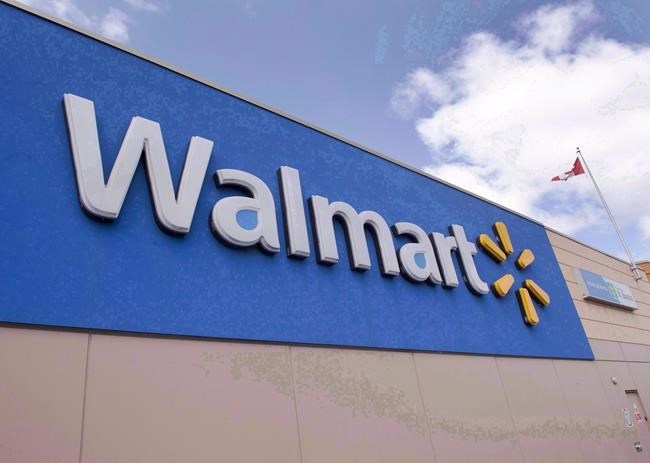TORONTO — Long before the first snowflake has hit the ground in Toronto, Catherine Choi is already planning for the holiday season.
It's the busiest sales period for her trio of Hanji Gift shops, but this time, they'll be closed.
Lockdown restrictions that went into effect in Toronto and Peel Region on Monday have forced small businesses to close their brick-and-mortar locations while COVID-19 continues to spread.
That means Choi will have to rely on curbside pickup and e-commerce to sell her array of cards, notebooks and other paper goods, but big box stores like Walmart and Costco will be allowed to stay open and offer the same products because they also stock essentials like groceries.
It's a policy some small business owners worry could result in a slump in sales or worse: the death of their business and their own financial ruin.
"I stand behind public health officials because … they're making decisions to keep everybody safe, but it is frustrating that stores like Walmart and Loblaw are able to profit … during a time when small businesses are shutting down and it's not fair," Choi said
"We're going to lose the foot traffic of people just going to Koreatown because there's so many cute little stores … and we have a lot of older customers who don't believe in online shopping."
Choi's worries come as the country's largest organization of small businesses is calling on the Ontario government to allow all non-essential small retailers to open for in-store sales, but with very limited capacity.
The Canadian Federation of Independent Business, which represents more than 110,000 small- and medium-sized companies, suggests the government could keep stores open and people safe by limiting the number of staff and customers at any given time, and encouraging shoppers to pre-book their visits.
"If it is dangerous to buy a book at an independent bookseller, why isn’t it dangerous at Costco?” questioned CFIB president Dan Kelly in a release.
“The lockdown restrictions have created a massive unfair advantage for many big, multinational corporations."
The CFIB called out Costco and Walmart specifically. Neither responded to a request for a comment.
Hudson's Bay Co. kept its flagship Queen Street store in Toronto open on Monday. Despite the bulk of its products being non-essential, the company argued it sells essential items like food and appliances and has a Pusateri's grocery store.
But the company sent The Canadian Press an email Monday evening saying that while choosing to stay open was "in line with the province's direction," it had decided to close the store.
HBC President Iain Nairn told a virtual audience at a Retail Council of Canada event on Monday the lockdown is unfair e government hasn't made public any data showing COVID-19 is spreading at stores.
Ontario premier Doug Ford's office referred requests for comment to the ministry of health, which said in an email that big box stores are impacted too because they have to limit capacity to 50 per cent.
"To be clear, moving regions into a lockdown is not a measure this government takes lightly," a ministry spokesperson said in an email. "We continue to closely monitor the evolving situation to advise if and when public health measures need to be adjusted."
If the government doesn't change its policy, Kelly warns that many small businesses won't survive.
The CFIB estimated earlier in the year that 160,000 businesses across the country may permanently close due to COVID-19. It believes that number could climb all the way to 225,000 if restrictions persist.
When Ford introduced the lockdown policy on Friday, he pleaded for people to support small businesses.
“Please shop local," he said. "If you are shopping online I know it can be easy to go with Amazon, but please remember you can get the exact same product from local stores."
Ford also doubled the province's investment in small business supports to $600 million for personal protective equipment and other forms of relief.
Chris Korwin-Kuzynski, the chairman of the Lakeshore Village BIA and a former city councillor, was disappointed by the advantages big box stores are getting through Ford's approach.
"There is a clear mistake there because some of the small businesses could continue to operate with staggered people coming in just like a Walmart does or a grocery store or a Canadian Tire," he said. "Why do they all get the business and then the small little people don't get the business?"
Instead, small businesses have been left to contend with fewer shoppers, constantly changing restrictions and a struggle to shift operations online.
Choi has spent much of her time lately getting new products onto Hanji's website and while her online business has seen a bump, it pales in comparison to what she'd be making if her stores were open.
She misses the personal aspect of her business like gift wrapping items for customers, learning about who they are buying for and hearing about which products are their favourites.
She's hopeful they'll keep supporting her despite the tough times and changes, but she's already accepted that this year will be "very different."
— with files from Brett Bundale in Halifax and Anita Balakrishnan in Toronto.
This report by The Canadian Press was first published Nov. 23, 2020.
Tara Deschamps, The Canadian Press




